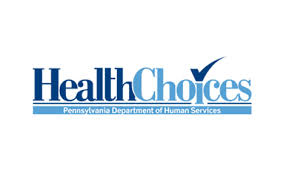PA Health Policy Update for Friday, July 22
The following is an update of selected state health policy developments in Pennsylvania for the week of July 18-22, 2022. (Some of the language used below is taken directly from state documents.)
Governor Wolf
The Wolf administration highlighted the launch of the 988 Suicide & Crisis Lifeline, which officially went live on July 16. Department of Human Services Acting Secretary Meg Snead joined Department of Health Acting Secretary Dr. Denise Johnson at an event this week to mark the occasion. This press release includes additional information about 988.
 Department of Human Services
Department of Human Services
- The Department of Human Services has updated the Medical Assistance fee schedule with a new procedure code for disposable surgical masks. Find details in this Pennsylvania Bulletin notice.
- Pennsylvania’s Independent Regulatory Review Commission has posted psychiatric rehabilitation services regulations proposed by the Department of Human Services’ Office of Mental Health and Substance Abuse Services (OMHSAS). The proposed regulations would enable individuals who are 14 years of age or older but under the age of 18 and who meet admissions requirements to gain access to psychiatric rehabilitation services. The proposed regulations also would amend the diagnoses that would enable such individuals to gain access to psychiatric rehabilitation services without using the exception process. Go here to find the proposed regulations. Public comments are due by August 8.
- DHS has posted the minutes of the June 23 meeting of the Medical Assistance Advisory Committee. Find those minutes here.
Department of Health
- Pennsylvania’s first probable human cases of West Nile virus infection in 2022 have been detected in Berks, Lancaster, Luzerne, and Philadelphia counties. Learn more about West Nile, the state’s response, and how to avoid it from this Department of Health news release and find additional information in a department West Nile fact sheet.
- The Department of Health has issued an advisory with new recommendations for rabies pre-exposure prophylaxis to prevent human rabies. Find the advisory message here.
- The Department of Health advised clinicians and public health officials that parechovirus (PeV) is currently circulating in the United States and recommends that clinicians consider PeV infection in a neonate or infant presenting with fever, sepsis-like syndrome, or signs of neurologic involvement.
COVID-19: By the Numbers
- The daily average of newly reported COVID-19 cases remained relatively steady over the past week, as did the number of COVID-related deaths.
- The number of people hospitalized with COVID-19 rose modestly over the past week, the number in hospital ICUs remained similar to last week, and the number on ventilators rose 37 percent but the number itself is modest.
- Sixty-three of Pennsylvania’s 67 counties are currently experiencing a high rate of community transmission of COVID-19, up from 52 counties last week. The remaining four counties – Forest, Snyder, Sullivan, and Susquehanna – experienced a substantial rate.
 Insurance Department
Insurance Department
The Insurance Department has announced a network adequacy study as part of the State Flexibility to Stabilize the Market Grant Program Cycle II provided by the federal Centers for Medicare & Medicaid Services. One of the proposed projects includes studying the accessibility of medical providers, especially specialty providers, throughout the state. The goal of this study is to understand areas of need based on the current availability of providers to accept new patients and how much time it takes to get an appointment with these providers and to help assess if the state’s current health care network can adequately address the needs of the population. The Insurance Department welcomes public comment from organizations, consumer advocates, providers, and consumers about their experience with access to various in-network providers. The department has developed a list of targeted provider areas but welcomes input, comments, lived experiences, and suggestions of other provider types and areas of need. Learn more about the study, the provider types on which the department believes it should focus, and how to submit comments from this Insurance Department news release. Comments are due by August 5.
Monkeypox
The CDC has posted an updated map showing the distribution of 2108 confirmed cases of monkeypox in the U.S. as of July 19 – twice as many as a week ago. Sixty-four of those cases were in Pennsylvania – also twice as many as a week ago.
 Stakeholder Events
Stakeholder Events
Department of Human Services – Medical Assistance Advisory Committee – Consumer Subcommittee – July 27
The Medical Assistance Advisory Committee’s consumer subcommittee will meet virtually on Wednesday, July 27 at 1:00. Go here to register to participate.
Department of Human Services – Medical Assistance Advisory Committee – July 28
The Medical Assistance Advisory Committee will meet virtually on Thursday, July 28 at 10:00. Go here to register to participate.
Department of Human Services – Long-Term Care Learning Network – July 28
DHS’s Long-Term Care Learning Network, part of its quality strategy for nursing facilities, is offering in collaboration with the Community HealthChoices managed care organizations and the Jewish Healthcare Foundation a special population webinar on advance care planning and Pennsylvania orders for life-sustaining treatment in long-term-care settings. The webinar is especially oriented for nurse practitioners, medical directors, directors of nursing, social workers, and managed care organization case workers. Learn more about the webinar here and register to participate here.
Department of Health – Special Pharmaceutical Benefits Program Advisory Council – July 28
The Department of Health’s Special Pharmaceutical Benefits Program Advisory Council will hold a public teleconference meeting on Thursday, July 28 at 10:00. For more information about the role of the council and how to dial into the meeting, see this Pennsylvania Bulletin notice.
Department of Health – Organ Donation Advisory Committee – August 4
The Organ Donation Advisory Committee will hold a public meeting on Thursday, August 4, 2022. The purpose of the meeting is to review progress in organ and tissue donation in this Commonwealth, recommend education and awareness activities, and recommend priorities in expenditures from the Organ and Tissue Donation Awareness Fund. Information on how to participate in the meeting can be found here.
Department of Health – Traumatic Brain Injury Advisory Committee – August 5
The Traumatic Brain Injury Advisory Board will hold a public meeting on Friday, August 5, 2022, from 10:00 a.m. to 3:00 p.m. For more information about the role of the council and how to dial into the meeting, see this Pennsylvania Bulletin notice.
Department of Health – Health Care Policy Board – August 10
The Health Policy Board of the Department of Health will meet on Wednesday, August 10, 2022, at 2 p.m. The purpose of this meeting is to consult with the Board on the Department’s draft final-form long-term care nursing regulations. Information on how to participate in the meeting can be found here.
 Governor Wolf
Governor Wolf FY 2023 Budget Update
FY 2023 Budget Update General Assembly
General Assembly Department of Health
Department of Health Changes in HealthChoices managed care plans that take effect on September 1.
Changes in HealthChoices managed care plans that take effect on September 1. General Assembly
General Assembly Governor Wolf
Governor Wolf Department of Drug and Alcohol Programs
Department of Drug and Alcohol Programs Cytomegalovirus, or CMV, is found in roughly one out of every 200 babies born in the U.S. and the most infectious cause of birth defects. Under the new law the Pennsylvania Department of Health must post information about CMV on its web site and health care providers must give parents or guardians of newborns information about CMV and offer a screening or referral within 21 days if the newborn fails the initial newborn hearing screening; hearing loss is the most common long-term effect of CMV.
Cytomegalovirus, or CMV, is found in roughly one out of every 200 babies born in the U.S. and the most infectious cause of birth defects. Under the new law the Pennsylvania Department of Health must post information about CMV on its web site and health care providers must give parents or guardians of newborns information about CMV and offer a screening or referral within 21 days if the newborn fails the initial newborn hearing screening; hearing loss is the most common long-term effect of CMV.


 Department of Drug and Alcohol Programs
Department of Drug and Alcohol Programs Beginning on September 1, some of the Medical Assistance physical health HealthChoices managed care organizations within the five regional HealthChoices zones in the state will be changing. Some of the plans will be leaving individual zones, some plans will serve new zones, and one plan will leave Pennsylvania entirely.
Beginning on September 1, some of the Medical Assistance physical health HealthChoices managed care organizations within the five regional HealthChoices zones in the state will be changing. Some of the plans will be leaving individual zones, some plans will serve new zones, and one plan will leave Pennsylvania entirely. Pennsylvania Health Care Cost Containment Council (PHC4)
Pennsylvania Health Care Cost Containment Council (PHC4)